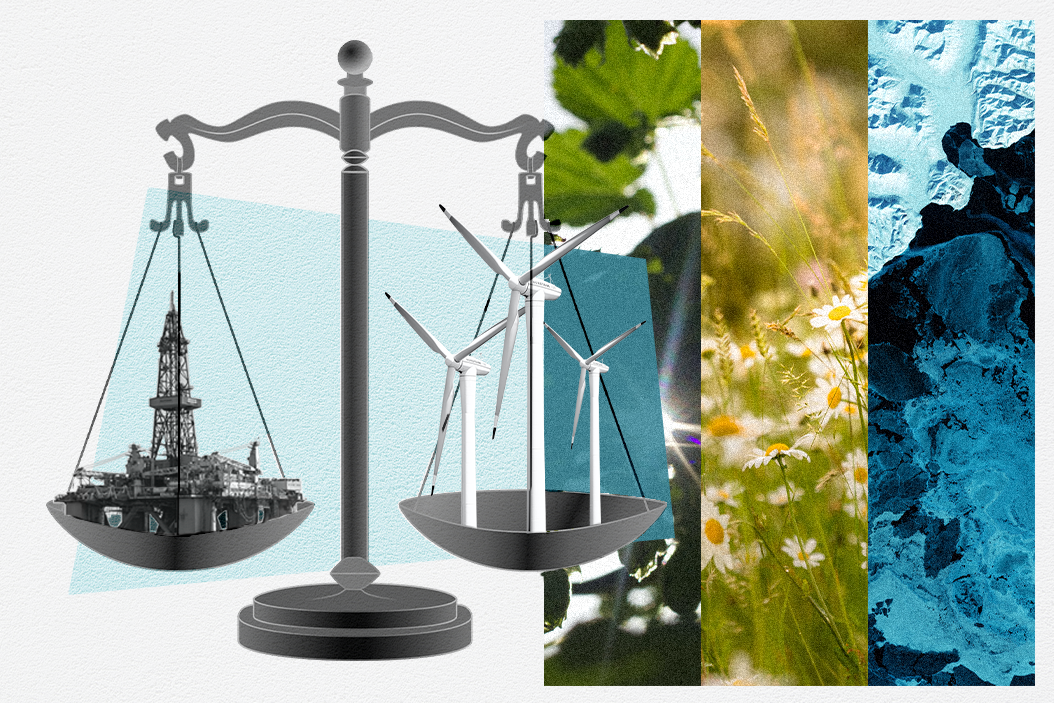Everyone understands that burning fossil fuels contributes directly to global warming. We all know that we have to reduce oil and gas consumption to avert the worst effects of climate change. And we're well aware that this is a major focus at COP26 right now.
But spare a thought for those who are often portrayed as the bad guys in all of this: the countries that pump and export hydrocarbons like mad. And they do it not because they hate polar bears, but rather because oil and gas exports are crucial for their economies, their geopolitical power, or in some cases their very survival.
Let's have a look at the tradeoffs that a few exemplary exporters are dealing with.
Saudi Arabia: "We need the black (gold) in order to go green!" The world's leading oil exporter relies on selling petroleum for half of GDP, and almost three-quarters of export earnings. In other words, you will pry the energy industry away from Riyadh's cold dead hands.
What the Saudis have proposed, by way of a climate action plan to achieve net zero carbon emissions by 2060, is to massively reduce emissions within their borders by investing in renewable energy, carbon capture, and tree-planting schemes. What Riyadh has not pledged to do is cut oil production. In fact, the Kingdom envisions increasing output in the coming years.
Critics say that Riyadh's promises are a dodge, a kind of country-level greenwashing that ignores the global impact of the local energy industry. The Saudis' argument is: well, where do you expect us to get the cash to diversify our economy if not from the one thing — just about the only thing — that actually earns us money?
Russia: the Arctic Amazon? The Kremlin's most important tool of geopolitical influence is its control over the Russian gas pipelines that keep Europe warm. No wonder the world's fourth largest polluter hasn't historically been a cheerleader for cutting emissions.
Plus, as the Arctic ice melts, it's opening up lucrative maritime shipping lanes that Moscow can control. But recently Vladimir Putin has started to sound more urgent about global warming, calling it a "serious danger" for Russia and the world. Russia plans to get to Net Zero before 2060by boosting renewable energy, phasing out coal use, and even (very) gradually reducing oil exports after 2030.
A big twist here is that Putin spies an opportunity for Russia to be a green superpower in its own right. Its sprawling and largely untouched forests can absorb billions of tons of carbon every year, provided they don't burn down. Critics say Putin is just hiding behind those trees in order to avoid cutting more emissions.
Iraq: "We'll get back to you on the climate stuff." Iraq this year suffered an unprecedented wave of deadly heat, which scientists ascribed in part to climate change. The heatwave caused blackouts, which in turn contributed to mass protests about corruption and unemployment. Then, almost no one voted in the recent election, and the government that took power afterwards remains fractious, weak, and mistrusted.
A government like that is hardly in a position to lead a sustained drive to diversify the economy. Nor to massively adopt renewables in a country that derives 90 percent of its income from oil, and is the world's third largest oil exporter.
Climate policy requires a credible and functioning state. Some major oil-producing countries (Venezuela comes to mind as well) simply have more pressing needs right now, like holding the country together.
Guyana: "Don't keep us from getting rich!" A few years ago, the small, coastal South American country of Guyana made an astounding discovery. Oil. Gargantuan amounts of it. Enough to transform one of the Western Hemisphere's poorest nations into one of the world's richest in a matter of years.
And you want them to give that up? That's a tough sell. But it's not just about getting rich: some 80 percent of Guyana's population lives below sea level, meaning climate change poses a huge risk to the country.
Where else, ask Guyana's leaders, are we going to get the money to mitigate that damage, if not from selling oil?
